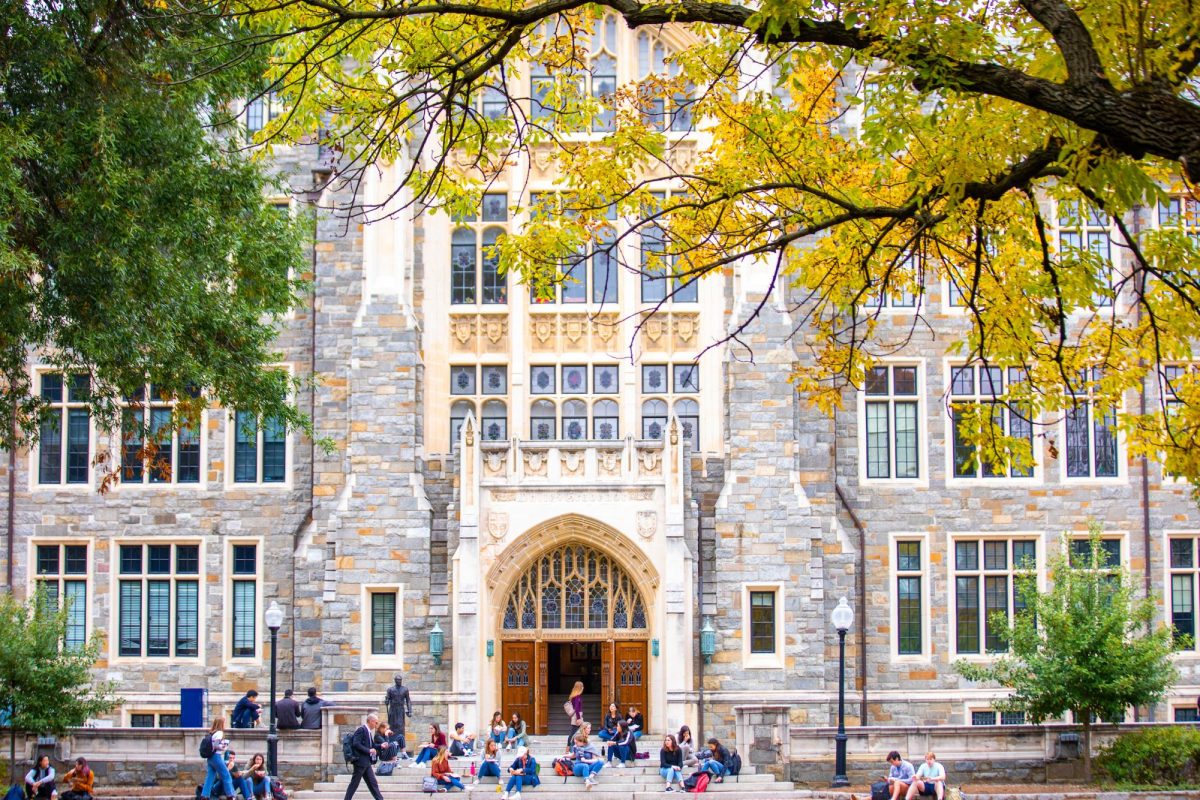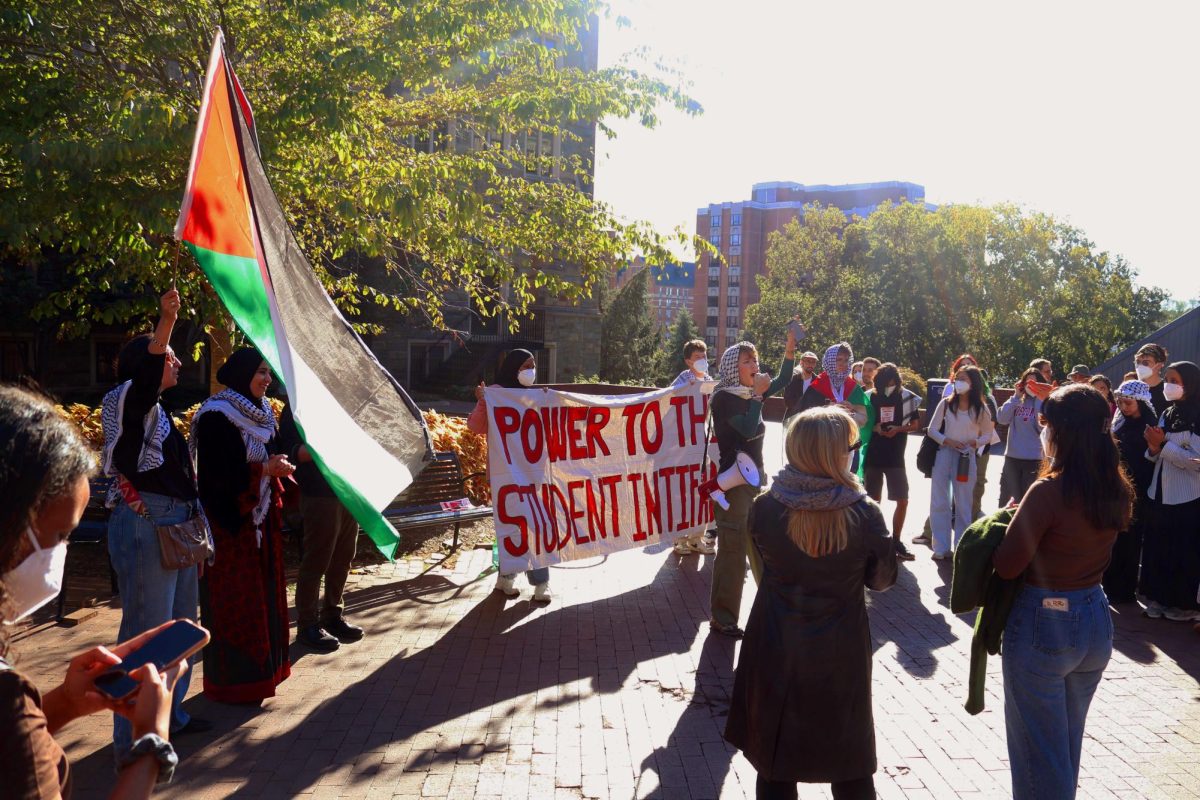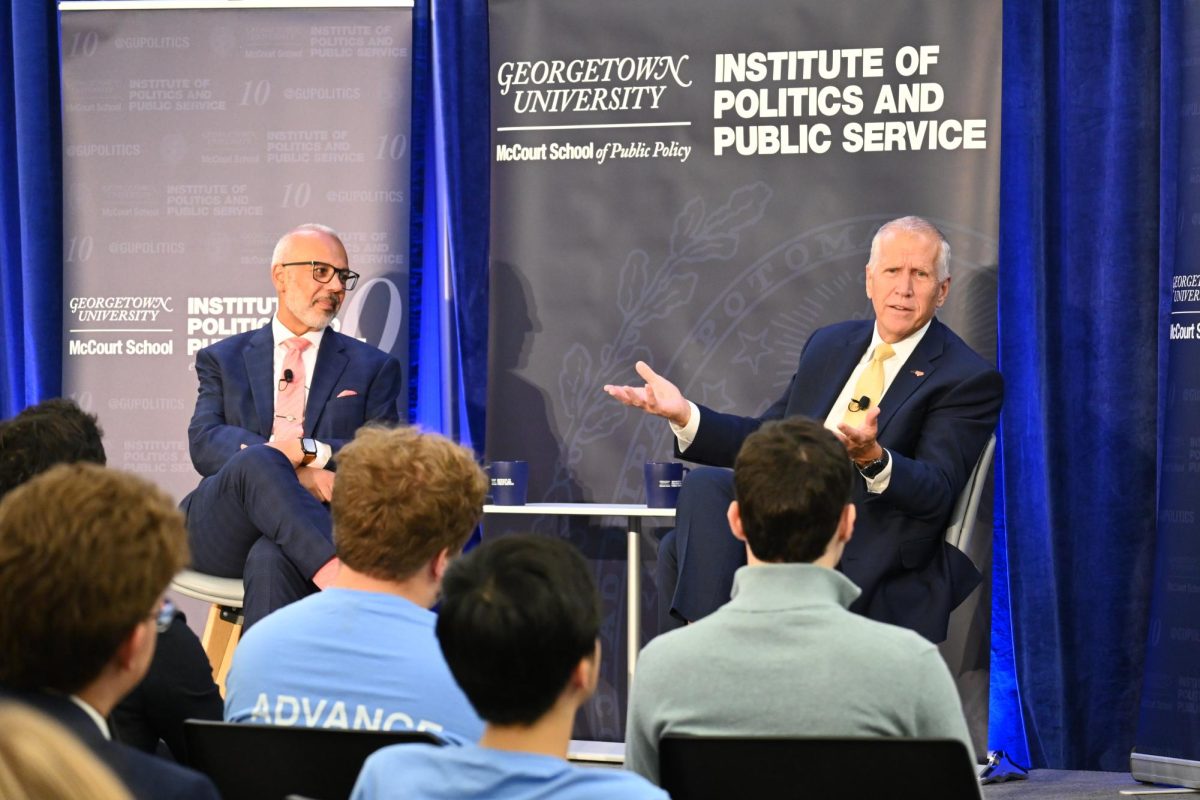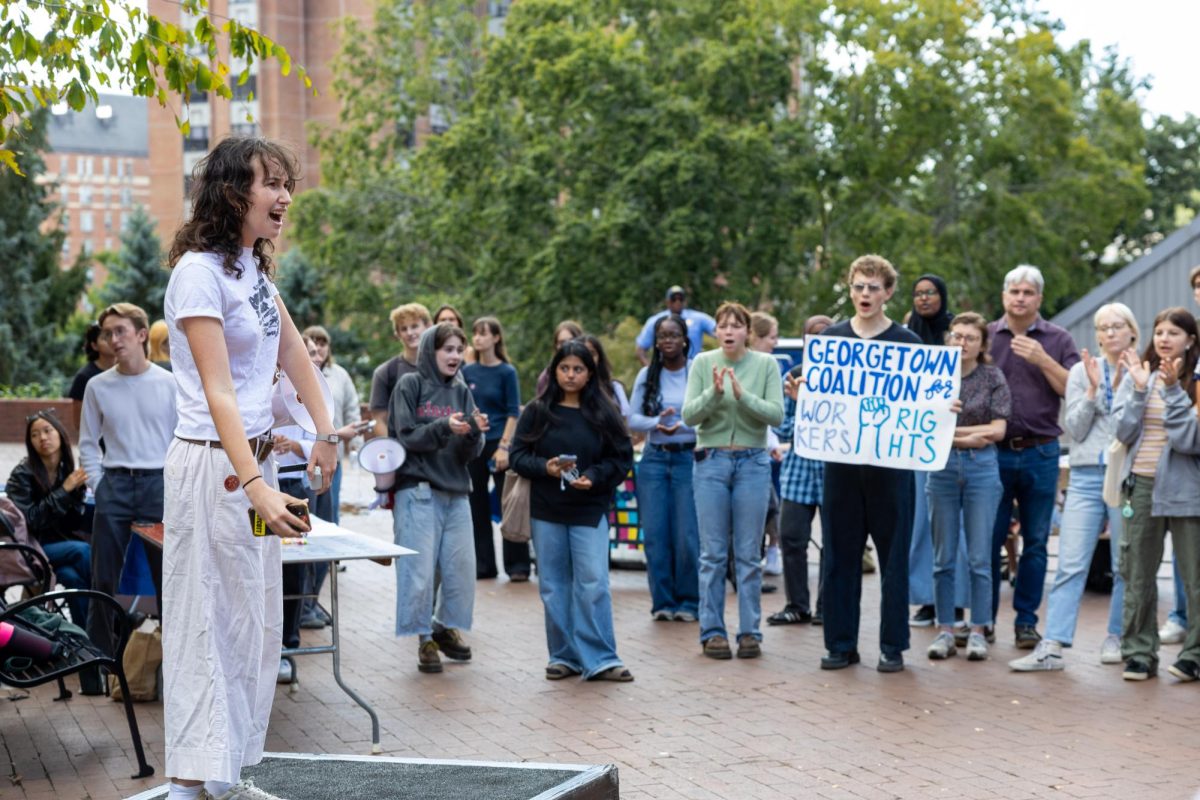After nearly seven months of negotiations, Georgetown University resident assistants and the university are nearing a final agreement on a union contract.
The Georgetown Resident Assistant Coalition (GRAC), the organization representing Georgetown University resident assistants (RAs) in collective bargaining negotiations, completed their ninth and tenth rounds of negotiations with university officials Feb. 25 and March 13. During the two sessions, the two sides negotiated agreements on training and job descriptions before exchanging offers on compensation, one of three packaged provisions remaining.
Sam Lovell (CAS ’25), the interim chairperson of GRAC and an RA in Copley Hall, said the session was productive, but negotiations will continue.
“We received an offer, and it’s one that we have to work a little bit more at toward a final agreement, but certainly it was a good first step,” Lovell told The Hoya. “I think that we’ve set our expectations and set ourselves up to succeed.”
During the Feb. 25 negotiations, GRAC and the university tentatively agreed to an article regarding training and language related to RA sanctioning and guidelines. At the March 13 meeting, GRAC and the university tentatively agreed on job descriptions, outlining the specific duties expected for RAs, before beginning negotiations on a compensation package including a semesterly stipend.
The package covering compensation also includes articles on management rights, a provision that limits the scope of the two sides’ bargaining, and “no strike, no lockout,” a standard provision in union contracts which prevents the union from striking unless there is an unfair labor practice.
A university spokesperson said the university is committed to bargaining in good faith with RAs and their representation from Local 153 of the Office and Professional Employees International Union (OPEIU).
“The University values the contributions of Resident Assistants and continues to work in good faith with OPEIU to negotiate a collective bargaining agreement,” the spokesperson wrote to The Hoya. “We do not comment about ongoing discussions at the bargaining table. Georgetown is committed to continuing to negotiate in good faith.”
Throughout negotiations, GRAC members described economic provisions as key for RAs. The compensation article the RAs negotiated March 13 includes RA room and board, meals during training and closing periods, stipends and laundry services.
Ulises Olea Tapia (SFS ’25), the interim bargaining lead of GRAC and an RA in Village A, said compensation was the union’s top priority.
“This was the top issue for our RAs, not only when unionizing, but when explaining their priorities for the upcoming negotiations for the contract,” Olea Tapia told The Hoya. “This was the number one issue for most RAs and we want to address the issue as such. We had a very productive session.”
“We’re confident we can reach an agreement hopefully soon,” he added.
Izzy Wagener (SFS ’26), the interim vice chairperson of GRAC and an RA in Kennedy Hall, said the RAs’ nearly year-long unionization process has centered on compensation.
“It’s definitely really exciting to get to this point since it is something that we’ve been talking about since we started the unionization process,” Wagener told The Hoya. “I think what a lot of people don’t really realize about unionizing is just how long and how much work the contract negotiation process takes.”
RAs are currently compensated for their work with free room and board, including a meal plan. RAs do not receive stipends.
As a result, according to Olea Tapia, the current distribution of room and board becomes regressive: as financial aid often covers some room and board costs, many RAs on financial aid receive less compensation than those who do not receive aid.
Lovell said this current structure is unfair, but a stipend is a key step toward more equitable payment.
“It’s a difficult concession to make because I’m on financial aid and so I know that comes with not receiving the full value of what you’re promised,” Lovell said. “We’re talking about a non-trivial amount of money in a stipend that we’re seeking and perhaps we’re setting up people down the line who will negotiate the next contract to be in a better position to find creative solutions to this problem about addressing financial aid.”
GRAC initially proposed a stipend of $5,950 per semester. According to Olea Tapia, this value is based on 20 work hours per week at approximately $16.50 an hour for 18 total weeks — 15 weeks of work and three weeks for training and closing periods. The current D.C. minimum wage is $17.50 per hour.
The university countered with a proposal for stipends of $1,066 per semester and $932.75 for the summer term. With RAs working 20 hours per week for 18 weeks a semester, the $1,066 stipend equates to approximately $2.96 an hour, while the summer stipend, for 8 weeks’ work with 20 hours per week, is approximately $5.81 an hour.
Olea Tapia said the university’s proposal was too low.
“The reality is that while we understand this rationale, this is indeed a job and we expect to be compensated fairly for this job and less than $3 an hour is simply not okay,” Olea Tapia said.
GRAC instead proposed that current RAs receive the $1,066 stipend for this semester upon ratification of the contract with an increasing stipend over the course of the four-year contract term. Under GRAC’s proposal, RAs’ stipend would rise annually, from $2,000 in the 2025-26 academic year to $2,500 the following year, $2,750 the year after and $3,000 in the 2028-29 academic year.
For RAs’ normal working hours, the initial $2,000 stipend equates to $5.55 per hour, less than one-third of current D.C. minimum wage and less than the federal minimum wage of $7.25. The eventual $3,000 stipend would equate to approximately $8.33 an hour.
Lovell said that while the stipend is lower than what GRAC believes will best support RAs, the existence of any stipend represents progress towards higher compensation.
“Right now, RAs receive zero dollars in any form of a stipend,” Lovell said. “And $2,000 a year is not nothing. For many students on this campus, that’s a big deal. We’re working and we’re going to try our best to improve on that figure.”
Wagener said she feels hopeful about future bargaining and eventual compensation.
“I’ve told multiple RAs about the compensation session today and a lot of people have been really excited about it, which is just nice to see because I think sometimes you can get in this bubble of focusing so much on the actual contract language that you forget what the actual impact is going to be,” Wagener said.
Olea Tapia said he expects GRAC and the university to finish bargaining after one additional session.
“We are coming to the table with a true care, not only for the Georgetown community, but particularly for our RAs, and it’s been absolutely delightful to continue to see that commitment throughout the process,” Olea Tapia said. “We’re hoping to see that commitment expressed in a more expedited form of bargaining in the coming weeks.”









